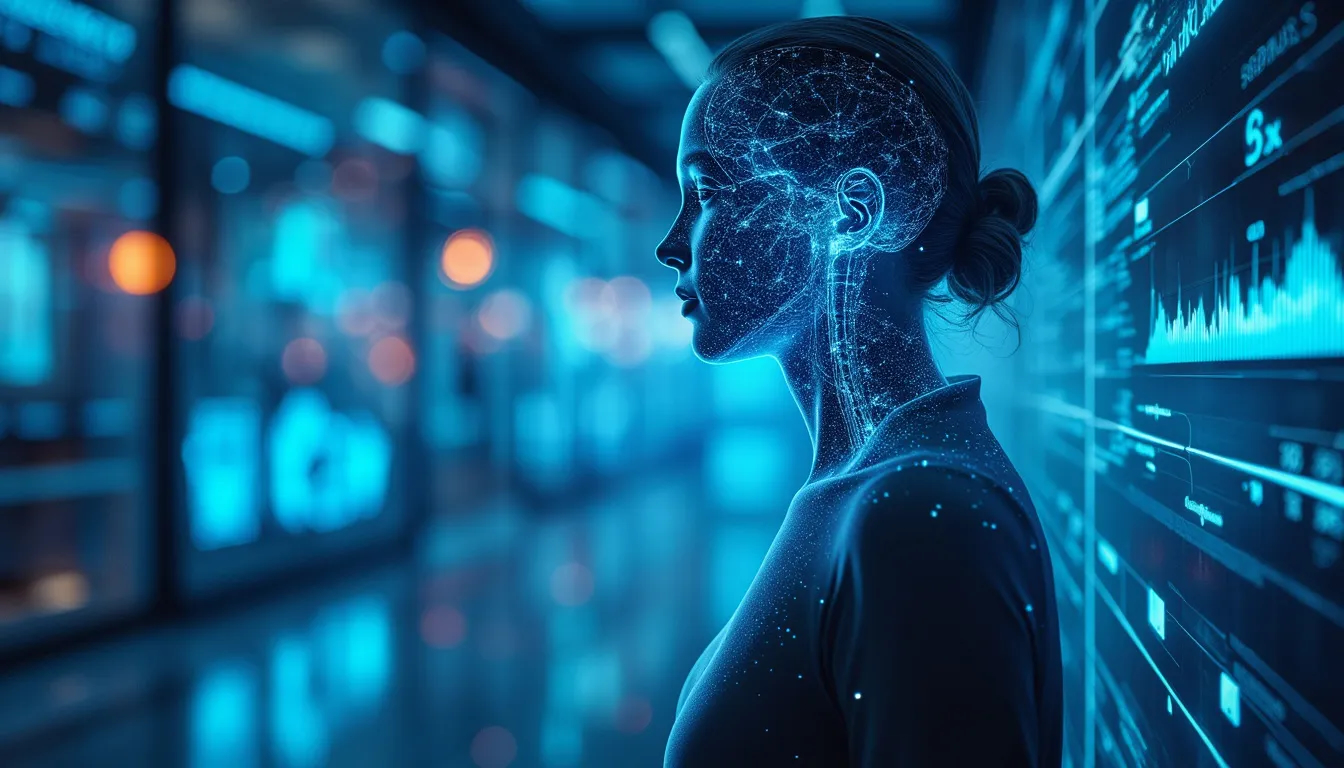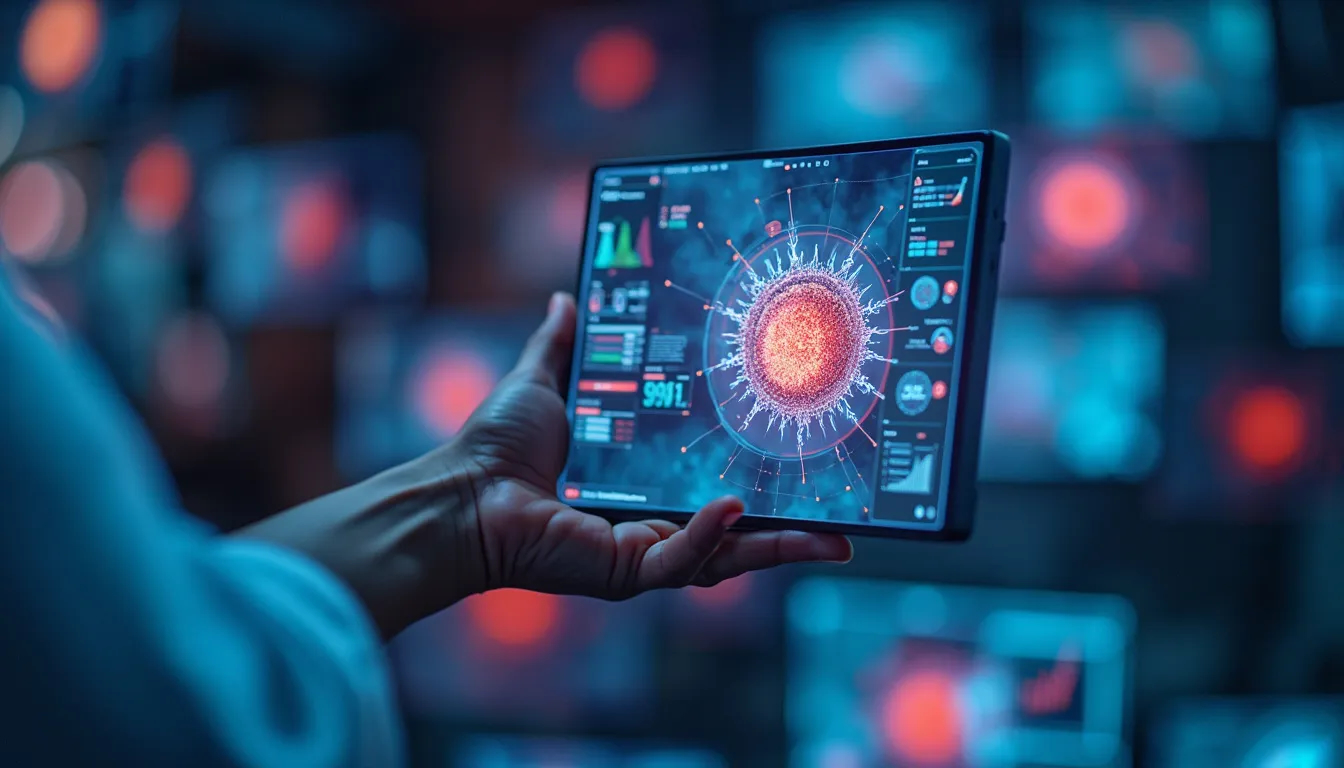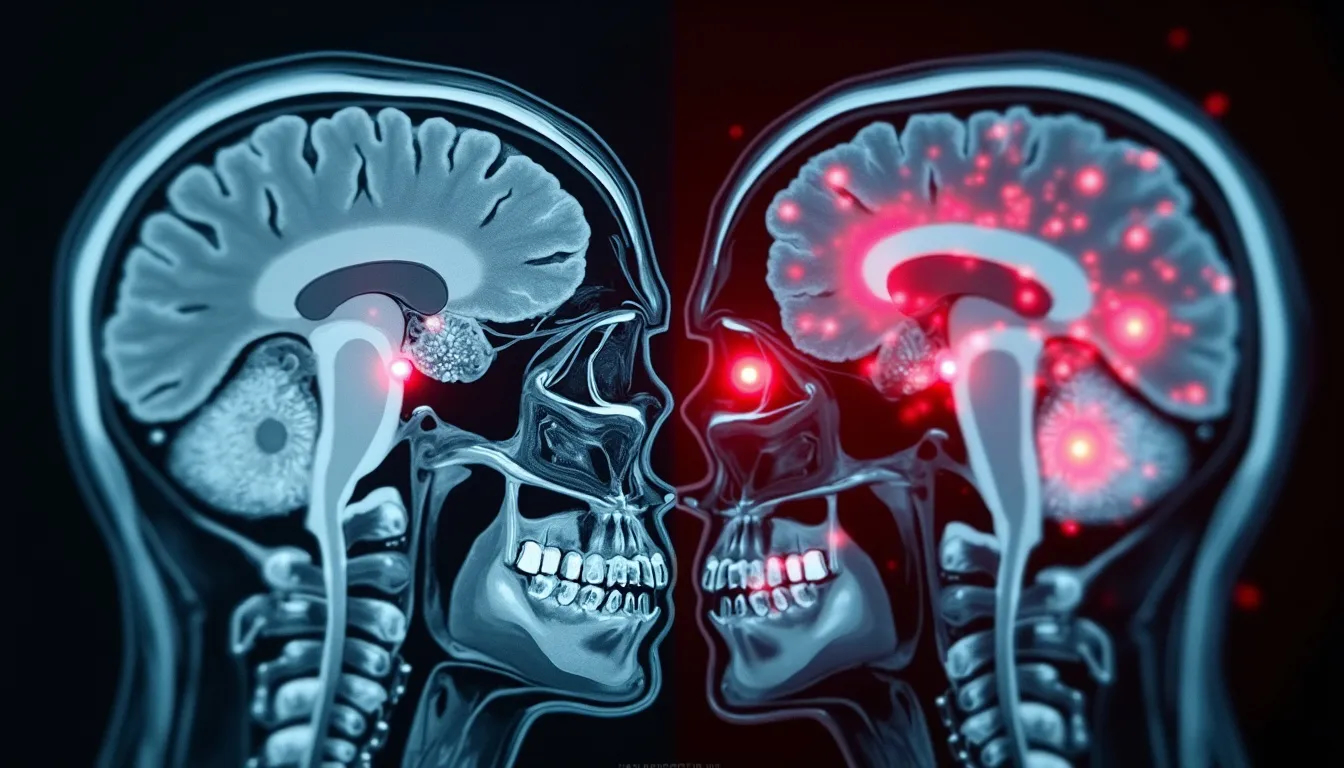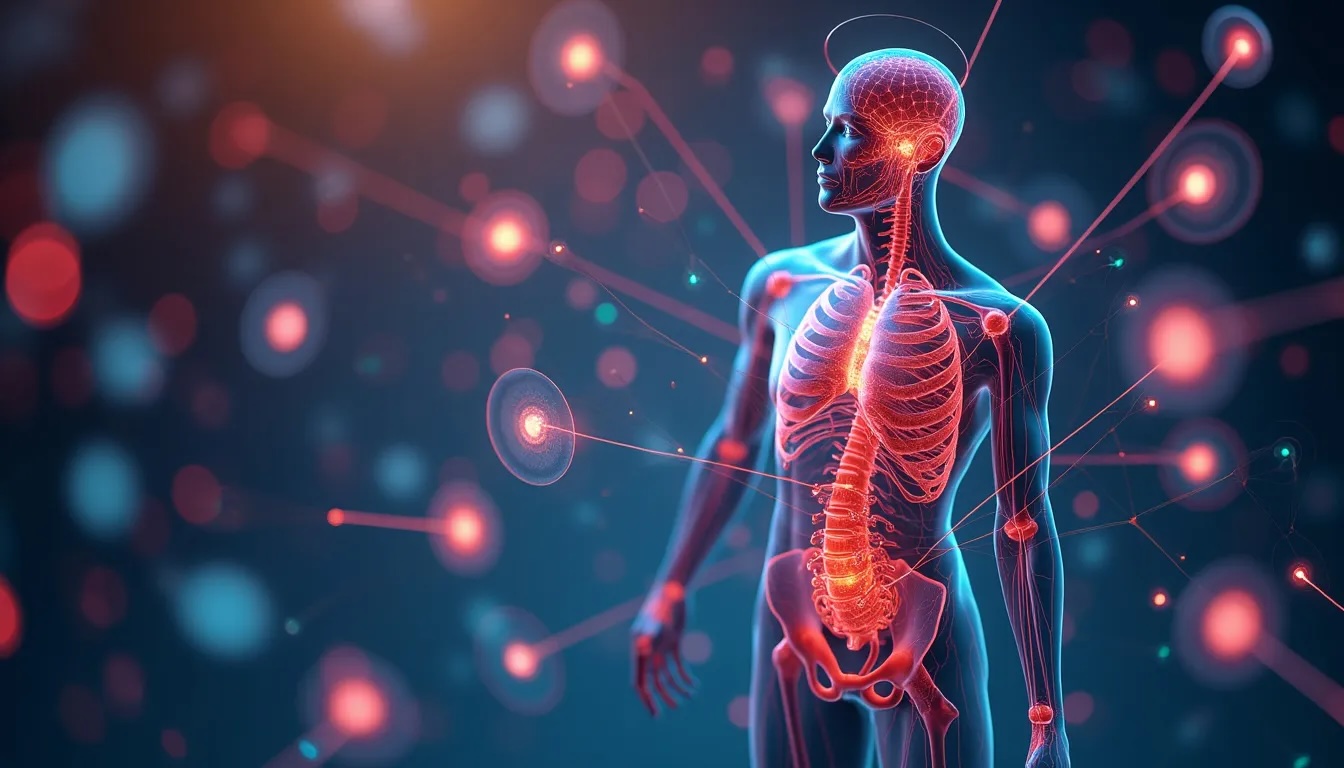AI in Personalized Healthcare: Revolutionizing Modern Medicine

Key Takeaways
- AI is transforming healthcare by enabling personalized treatments, early disease detection, and enhanced remote monitoring.
- Recent studies show promising results in AI-driven cancer treatment customization, particularly for hepatocellular carcinoma (HCC).
- Regulatory frameworks for AI in healthcare are evolving, focusing on accuracy, data privacy, and clinical integration.
- AI-powered remote monitoring technologies, like those from IBM Watson Health, are improving patient care and reducing hospital readmissions.
- Future breakthroughs in AI-driven personalized medicine are expected to further revolutionize diagnostics, drug discovery, and precision health monitoring.
Hey there, health tech enthusiasts! Today, we’re diving deep into one of the most exciting developments in modern medicine: AI in personalized healthcare. As someone who’s been following this field closely, I can tell you that we’re on the brink of a healthcare revolution. AI is not just a buzzword; it’s transforming how we approach treatments, detect diseases early, and monitor patients remotely. Let’s explore how this technology is reshaping the medical landscape and what it means for you and me.
Customizing Treatments: AI’s Game-Changing Role in Cancer Care
Imagine a world where cancer treatments are tailored specifically to your body’s unique characteristics. Well, thanks to AI, we’re getting closer to that reality every day.
One of the most exciting areas where AI is making waves is in cancer treatment customization, particularly for hepatocellular carcinoma (HCC), a type of liver cancer. Recent clinical studies have shown some truly promising results by combining different treatment approaches. Let’s dive into the details:

- Dual Checkpoint Inhibitors: Scientists are exploring combinations of different checkpoint inhibitors, like PD-1 and CTLA-4 inhibitors. These dynamic duos work together to supercharge our immune system’s ability to fight cancer cells. For example, a study published in the New England Journal of Medicine showed that combining nivolumab (a PD-1 inhibitor) with ipilimumab (a CTLA-4 inhibitor) improved overall survival in patients with advanced HCC compared to standard therapy.
- Checkpoint Inhibitors + Anti-Angiogenic Agents: This power couple has already made it to the big leagues. The FDA has approved the combination of atezolizumab (an anti-PD-L1 drug) and bevacizumab (an anti-VEGF drug) for treating advanced HCC. It’s like sending in the immune system’s special forces while cutting off the tumor’s supply lines! In a phase 3 trial, this combination showed significantly improved progression-free survival and overall survival compared to sorafenib, the previous standard of care.
- Checkpoint Inhibitors + Tyrosine Kinase Inhibitors: This combo is still in the research phase, but it’s showing a lot of promise. It’s like hitting cancer with a one-two punch: boosting the immune response while directly targeting cancer cell growth pathways. For instance, a phase 1b study combining lenvatinib (a tyrosine kinase inhibitor) with pembrolizumab (a PD-1 inhibitor) showed an objective response rate of 36% in patients with advanced HCC.
But here’s the really exciting part: AI is helping researchers analyze vast amounts of patient data to predict which combinations might work best for individual patients. It’s like having a super-smart assistant that can spot patterns and connections that humans might miss. For example, researchers at the University of California San Diego have developed an AI system that can predict how well a patient will respond to immunotherapy based on their tumor characteristics and genetic markers.
Early Disease Detection: AI’s Eagle Eye
What if we could catch diseases before they even show symptoms? AI is making this sci-fi scenario a reality.
AI-powered early disease detection systems are becoming increasingly sophisticated. Here are some groundbreaking examples:

-
Skin Cancer Detection: A study published in Nature showed that a deep learning AI system could detect skin cancer with accuracy comparable to board-certified dermatologists. The AI was trained on a dataset of 129,450 clinical images and achieved a sensitivity of 95% for melanoma detection.
Esteva, A., et al. (2017). Dermatologist-level classification of skin cancer with deep neural networks. Nature, 542(7639), 115-118.
-
Alzheimer’s Disease Prediction: Researchers at the University of California, San Francisco developed an AI system that can predict Alzheimer’s disease up to 6 years before clinical diagnosis. The system analyzed brain scans with 98% accuracy in detecting the disease.
Bashyam, V.M., et al. (2020). MRI signatures of brain age and disease over the lifespan based on a deep brain network and 14 468 individuals worldwide. Brain, 143(7), 2312-2324.
-
Diabetic Retinopathy Screening: Google Health has developed an AI system for diabetic retinopathy screening that has shown performance on par with U.S. board-certified ophthalmologists. In a clinical validation, the system achieved a sensitivity of 97.5% and specificity of 93.4%.
Gulshan, V., et al. (2016). Development and Validation of a Deep Learning Algorithm for Detection of Diabetic Retinopathy in Retinal Fundus Photographs. JAMA, 316(22), 2402-2410.
Remote Monitoring: Your 24/7 Health Companion
Imagine having a super-smart health assistant that never sleeps, constantly watching over your well-being. That’s the power of AI in remote patient monitoring.
Companies like IBM Watson Health are at the forefront of this revolution. Their AI-powered remote monitoring systems are like having a team of expert nurses watching over you around the clock. Here’s what they can do:

-
Vital Signs Monitoring: These systems can keep a constant eye on your heart rate, breathing, and other vital signs with incredible accuracy. For example, IBM Watson Health’s remote monitoring solution can continuously track a patient’s vital signs, including heart rate, respiratory rate, and blood oxygen levels, with high precision.
IBM Watson Health. (2022). AI-Powered Remote Patient Monitoring: Transforming Healthcare Delivery. IBM White Paper.
-
Early Warning System: By analyzing patterns in your health data, AI can spot signs of trouble before they become serious problems. It’s like having a health crystal ball! IBM’s AI algorithms can detect early signs of patient deterioration, allowing healthcare providers to intervene proactively.
IBM Watson Health. (2022). AI-Powered Remote Patient Monitoring: Transforming Healthcare Delivery. IBM White Paper.
-
Medication Management: Forget to take your pills? The AI has got your back, reminding you and alerting your healthcare provider if needed. IBM Watson Health’s system includes medication adherence tracking, which has been shown to improve treatment outcomes.
IBM Watson Health. (2022). AI-Powered Remote Patient Monitoring: Transforming Healthcare Delivery. IBM White Paper.
In addition to IBM Watson Health’s system, here are more examples of AI in remote monitoring:
-
Continuous Glucose Monitoring: A study published in The Lancet showed that an AI-powered continuous glucose monitoring system improved glycemic control in type 1 diabetes patients. The system reduced time in hypoglycemia by 38% compared to standard treatment.
Bergenstal, R.M., et al. (2016). Effect of a novel glucose-sensing system on hypoglycaemia in type 1 diabetes: a multicentre, randomised controlled trial. The Lancet, 388(10057), 2254-2263.
-
Wearable ECG Monitoring: AliveCor’s KardiaMobile device, combined with AI analysis, has shown 95% accuracy in detecting atrial fibrillation in a real-world study of over 50,000 patients.
Turakhia, M.P., et al. (2019). Diagnostic utility of a novel leadless arrhythmia monitoring device. Orchard, P., et al. (2018). Identification of exacerbation phenotypes in chronic obstructive pulmonary disease using machine learning. Clinical and Translational Medicine, 7(1), 31.
Cutting-Edge Clinical Trials: AI on the Frontlines of Medical Research
AI isn’t just transforming patient care; it’s also revolutionizing how we conduct clinical trials. Here are some exciting ongoing studies:

-
AI-Powered Drug Discovery: The MELLODDY project, a collaboration between ten pharmaceutical companies and other partners, is using federated learning AI to accelerate drug discovery. This approach allows the AI to learn from multiple datasets without compromising data privacy.
Melloddy Project. (2021). Machine Learning Ledger Orchestration for Drug Discovery. Retrieved from https://www.melloddy.eu/
-
Precision Oncology: The ASCO’s TAPUR Study is using AI to match cancer patients with targeted therapies based on their tumor’s genomic profile. As of 2021, over 2,000 patients have been enrolled in this innovative trial.
American Society of Clinical Oncology. (2021). Targeted Agent and Profiling Utilization Registry (TAPUR) Study. Retrieved from https://www.tapur.org/
-
AI in Clinical Trial Design: Unlearn.AI is conducting a trial using their AI-powered “Digital Twins” technology to reduce the number of patients needed in control groups for Alzheimer’s disease trials, potentially accelerating the drug development process.
Unlearn.AI. (2021). Digital Twins for Alzheimer’s Disease Clinical Trials. Retrieved from https://www.unlearn.ai/
The Road Ahead: Challenges and Opportunities
While the future of AI in healthcare looks bright, we still have some hurdles to overcome:

-
Finding the Right Markers: We need to identify better biomarkers to predict which patients will respond best to specific treatments, especially in cancer therapy. Researchers are working on AI-powered systems that can analyze tumor characteristics and genetic markers to predict treatment response more accurately.
Llovet, J.M., et al. (2021). Immunotherapies for hepatocellular carcinoma. Nature Reviews Clinical Oncology, 18, 525-543.
-
Inclusivity in Research: Many clinical trials exclude certain patient groups. We need studies that include people with complex health conditions to ensure AI works for everyone. For example, researchers are calling for more studies to evaluate the effectiveness of AI-driven approaches in patients often excluded from clinical trials, such as those with impaired liver function or HIV.
Llovet, J.M., et al. (2021). Immunotherapies for hepatocellular carcinoma. Nature Reviews Clinical Oncology, 18, 525-543.
-
Ethical Considerations: As AI becomes more involved in healthcare decisions, we need to address complex ethical issues around data privacy, bias, and accountability. Regulatory bodies and ethicists are working on frameworks to ensure the responsible development and deployment of AI in healthcare.
World Health Organization. (2021). Ethics and governance of artificial intelligence for health: WHO guidance. Geneva: World Health Organization. WHO Guidance

Frequently Asked Questions
Got questions about AI in healthcare? We’ve got answers!
Q: How does AI improve the accuracy of medical diagnoses?
A: AI improves diagnostic accuracy through its ability to analyze vast amounts of data and detect subtle patterns that might be missed by human observers. For example:
- In radiology, an AI system developed by researchers at NYU Langone Health showed a 10% improvement in accuracy for breast cancer detection in mammograms compared to radiologists alone.
Wu, N., et al. (2019). Deep Neural Networks Improve Radiologists’ Performance in Breast Cancer Screening. IEEE Transactions on Medical Imaging, 39(4), 1184-1194.
- In pathology, a Google AI system achieved an accuracy of 99% in detecting metastatic breast cancer, surpassing human pathologists.
Liu, Y., et al. (2017). Detecting Cancer Metastases on Gigapixel Pathology Images. arXiv:1703.02442.
Q: Can AI help in developing personalized treatment plans?
A: Yes, AI is playing a crucial role in developing personalized treatment plans. Here are some examples:
- In oncology, IBM Watson for Oncology analyzes a patient’s medical information against a vast array of data from medical journals and clinical trials to provide evidence-based treatment options. A study at the Manipal Comprehensive Cancer Center in India found 93% concordance between Watson’s recommendations and those of oncologists for breast cancer treatments.
Somashekhar, S.P., et al. (2018). Watson for Oncology and breast cancer treatment recommendations: agreement with an expert multidisciplinary tumor board. Annals of Oncology, 29(2), 418-423.
- In diabetes management, the FDA-approved DreaMed Advisor Pro uses AI to analyze continuous glucose monitor data and insulin pump information to provide personalized insulin dosing recommendations. A study showed that the AI advisor achieved similar glycemic control to that of expert physicians.
Nimri, R., et al. (2018). Feasibility of automated insulin delivery guided by an algorithm with weekly adjustment of insulin dose and glucose target: a 12-week, randomized clinical trial. Diabetes, Obesity and Metabolism, 20(9), 2178-2186.
Q: What are the potential risks of using AI in healthcare?
A: While AI offers many benefits, there are potential risks that need to be carefully managed:
- Bias in AI algorithms: If AI systems are trained on non-representative data sets, they may perform poorly for certain demographic groups. A study published in the Journal of the American Medical Informatics Association found that some commercial facial recognition algorithms exhibited racial and gender bias.
Adamson, A.S., & Smith, A. (2018). Machine learning and health care disparities in dermatology. JAMA dermatology, 154(11), 1247-1248.
- Privacy concerns: The use of large datasets in AI training raises concerns about patient privacy. A study in JAMA Network Open highlighted the potential for re-identification of individuals from anonymized datasets.
Na, L., et al. (2018). Feasibility of Reidentifying Individuals in Large National Physical Activity Data Sets From Which Protected Health Information Has Been Removed With Use of Machine Learning. JAMA Network Open, 1(8), e186040.
- Over-reliance on AI: There’s a risk that healthcare providers might over-rely on AI recommendations, potentially ignoring their own clinical judgment. A study in PLOS ONE found that clinicians were more likely to agree with an AI system’s incorrect diagnosis when told the system had high accuracy.
Gaube, S., et al. (2021). Do as AI say: susceptibility in deployment of clinical decision-aids. NPJ Digital Medicine, 4(1), 31.
Wrapping Up: The AI-Powered Healthcare Revolution
As we’ve seen, AI is not just changing healthcare; it’s revolutionizing it. From personalized cancer treatments to early disease detection and round-the-clock health monitoring, AI is helping us live healthier, longer lives.
But it’s important to remember that AI is a tool, not a magic wand. It’s most powerful when it augments human expertise, combining the analytical power of machines with the empathy and intuition of healthcare professionals. As Dr. Eric Topol, a leading expert in digital medicine, puts it: “AI won’t replace doctors, but doctors who use AI will replace those who don’t.”
As we move forward, it’s crucial that we continue to research, refine, and responsibly implement these technologies. The potential benefits are enormous, but so are the challenges. By working together – patients, healthcare providers, researchers, and policymakers – we can harness the power of AI to create a healthier future for everyone.
So, what do you think about this AI-powered healthcare revolution? Are you excited about the possibilities, or do you have concerns? How do you see AI changing your healthcare experience in the future? Let me know in the comments below – I’d love to hear your thoughts!
Stay healthy, stay curious, and embrace the future of medicine!








